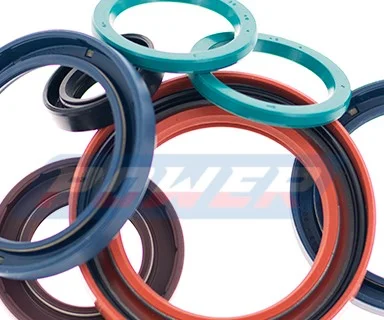Simmerring – Rotary Shaft Seal
Rotating machine components require proper shaft sealing to prevent grease or oil leaks and keep contaminants out. Known as radial shaft seals or Simmerrings, they play a vital role in machinery by extending service life and maintaining performance.
What is a Simmerring?
The name derives from German. It's a rotary seal ring designed for rotating parts exposed to grease, oil, fuel, or water. Operating range: up to 0.1 MPa, –30 °C to +110 °C depending on seal material.
Construction of a Simmerring
Four key components:
-
Metal reinforcement case
-
Sealing lip made of NBR, FPM, silicone, etc.
-
Pressure spring for consistent sealing
-
Optional dust lip for protection
Common materials include NBR, FPM/Viton®, silicone, ACM, and PTFE.
Choosing the Right Material
-
NBR: –30 °C to +100 °C, oil and grease resistant
-
FPM/Viton®: –20 °C to +200 °C, chemical and ozone resistant
-
Silicone: –60 °C to +200/230 °C, wide temperature range
-
ACM: –20 °C to +150 °C, for hot oil and atmospheric resistance
-
PTFE: memory effect material, can replace spring in some designs
Common Simmerring Types
-
Type A (single lip + spring)
-
Type AO (dual lip + dust seal)
-
Types B, BO (single lip without elastomer coating)
-
Specialized varieties: Duo, Combi, RWDR (modular cassette), ZBA/ZBL (no spring)
